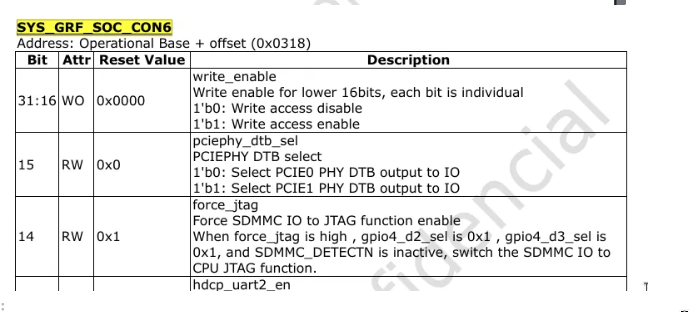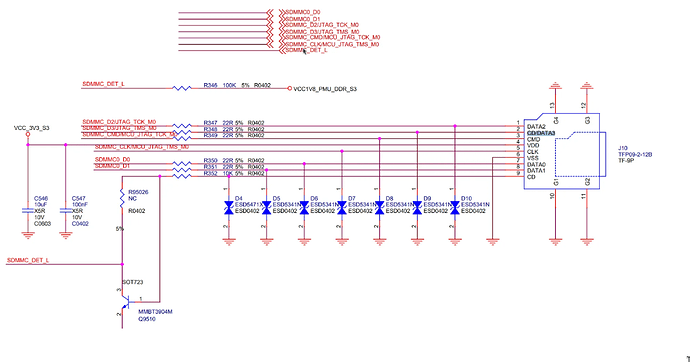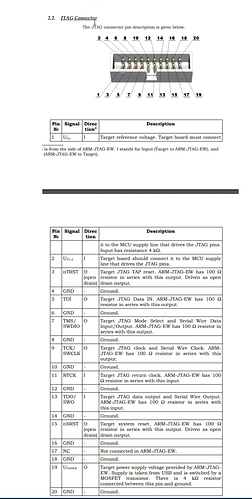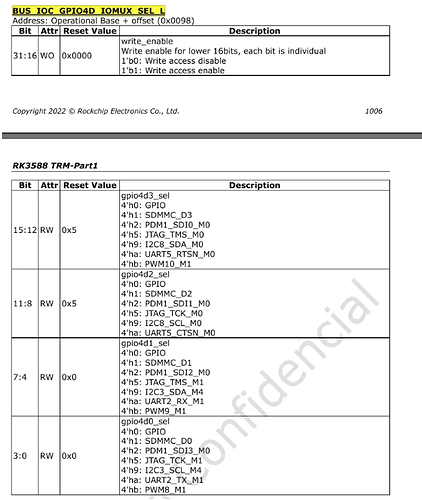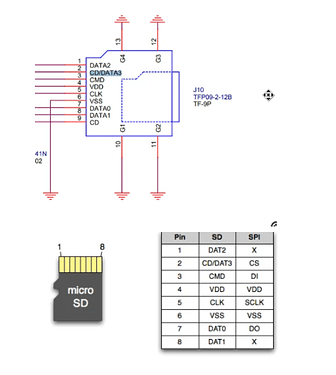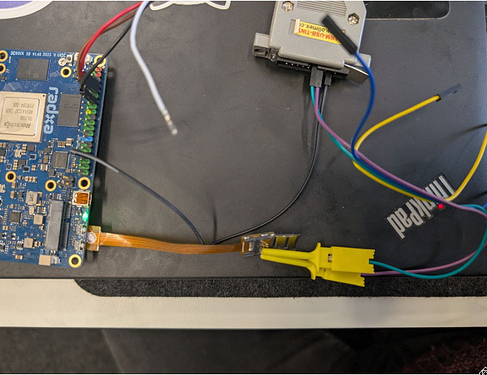Thank you for your reply.
Booting the board into maskrom mode does not change the connection issue.
I am still receiving: Error connecting DP: cannot read IDR.
This would make me conclude that there must be a physical connection issue, if you manage to receive a connection from maskrom mode.
- (Detour) What version of openocd do you use? In the latest version there is no -ctibase option in target create.
For bug reports, read
http://openocd.org/doc/doxygen/bugs.html
Info : FTDI SWD mode enabled
DEPRECATED! use 'adapter speed' not 'adapter_khz'
Warn : Transport "swd" was already selected
./rk3328.cfg:16: Error: Unknown param: -ctibase, try one of: -type, -event, -work-area-virt, -work-area-phys, -work-area-size, -work-area-backup, -endian, -coreid, -chain-position, -dbgbase, -rtos, -defer-examine, -gdb-port, or -gdb-max-connections
in procedure 'script'
at file "embedded:startup.tcl", line 28
at file "./rk3328.cfg", line 16
maskrom mode:
sudo rkdeveloptool ld
DevNo=1 Vid=0x2207,Pid=0x350b,LocationID=104 Maskrom
openocd connection issue:
sudo openocd -f ./olimex-arm-usb-tiny-h2.cfg -f ./rk3328.cfg
Open On-Chip Debugger 0.12.0-01004-g9ea7f3d64 (2024-12-27-21:22)
Licensed under GNU GPL v2
For bug reports, read
http://openocd.org/doc/doxygen/bugs.html
Info : FTDI SWD mode enabled
DEPRECATED! use 'adapter speed' not 'adapter_khz'
Warn : Transport "swd" was already selected
Info : Listening on port 6666 for tcl connections
Info : Listening on port 4444 for telnet connections
Info : clock speed 4000 kHz
Error: Error connecting DP: cannot read IDR
target.cfg:
#
# Rock-Chip RK3328
#
adapter_khz 4000
transport select swd
set _CHIPNAME rk3328
set _TARGETNAME $_CHIPNAME.cpu
set _ENDIAN little
swd newdap $_CHIPNAME cpu none
dap create $_CHIPNAME.dap -chain-position $_CHIPNAME.cpu
target create ${_TARGETNAME}0 cortex_a -dap $_CHIPNAME.dap \
-coreid 0 -dbgbase 0x81040000
# -ctibase 0x81014000
#
target smp ${_TARGETNAME}0
${_TARGETNAME}0 configure -event reset-assert-post "cortex_a dbginit"
debugger.cfg:
# SPDX-License-Identifier: GPL-2.0-or-later
#
# Olimex ARM-USB-TINY-H
#
# http://www.olimex.com/dev/arm-usb-tiny-h.html
#
adapter driver ftdi
transport select swd
ftdi device_desc "Olimex OpenOCD JTAG ARM-USB-TINY-H"
ftdi vid_pid 0x15ba 0x002a
ftdi layout_init 0x0808 0x0a1b
ftdi layout_signal nSRST -oe 0x0200
ftdi layout_signal nTRST -data 0x0100 -oe 0x0100
ftdi layout_signal LED -data 0x0800
# Map FTDI GPIO pins for SWD
ftdi layout_signal SWCLK -data 0x0100 -oe 0x0100
ftdi layout_signal SWDIO -data 0x0200 -oe 0x0200
ftdi layout_signal SWD_EN -data 0x0000 -oe 0x0000
lsusb:
Bus 001 Device 005: ID 15ba:002a Olimex Ltd. ARM-USB-TINY-H JTAG interface
dmsg:
[190208.771978] usb 1-6: new high-speed USB device number 5 using xhci_hcd
[190208.903042] usb 1-6: New USB device found, idVendor=15ba, idProduct=002a, bcdDevice= 7.00
[190208.903054] usb 1-6: New USB device strings: Mfr=1, Product=2, SerialNumber=3
[190208.903064] usb 1-6: Product: Olimex OpenOCD JTAG ARM-USB-TINY-H
[190208.903068] usb 1-6: SerialNumber: OL44653F
[190208.912563] ftdi_sio 1-6:1.1: FTDI USB Serial Device converter detected
[190208.912644] usb 1-6: Detected FT2232H
[190208.912846] usb 1-6: FTDI USB Serial Device converter now attached to ttyUSB0
- For the wiring. I currently do not have a multi meter. But it is only 3 pins I am connecting.
Let me walk you through my steps, maybe you have some idea what I forgot.
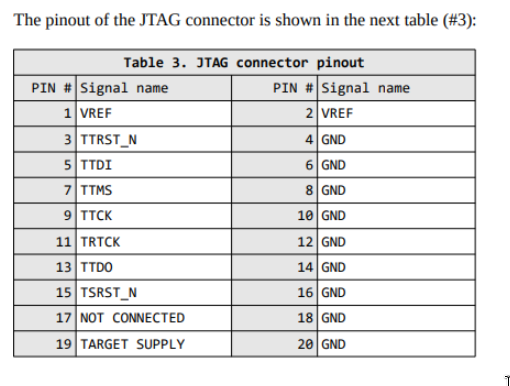
-
Sdcard Pin1: Data2 -> SDMMC_D2/JTAG_TCK_M0 -> TTCK on jtag connector -> Pin 9
-
Sdcard Pin2: CD/Data3 -> SDMMC_D3/JTAG_TMS_M0 -> TTMS on jtag connector -> Pin 7
-
Connect GPIO ground pin on board with any ground pin on the JTAG connector
Do you have some ideas? Or perhaps a working configuration for your setup you can point me to?
Any help is greatly appreciated.
